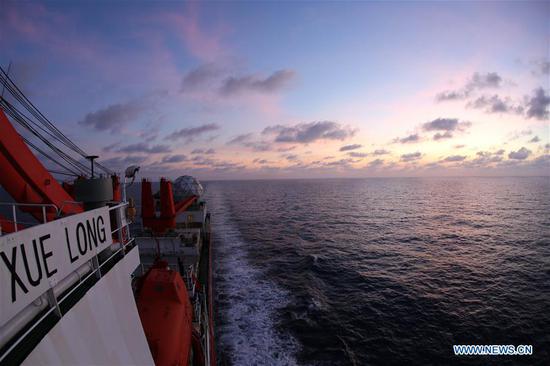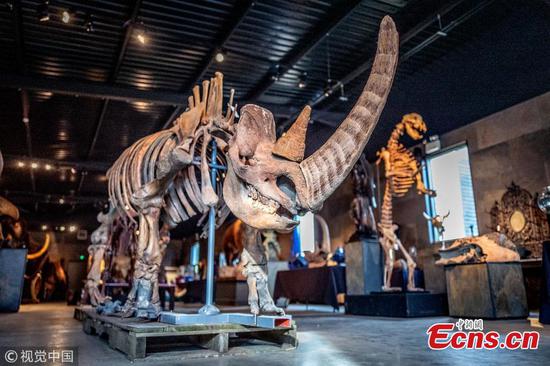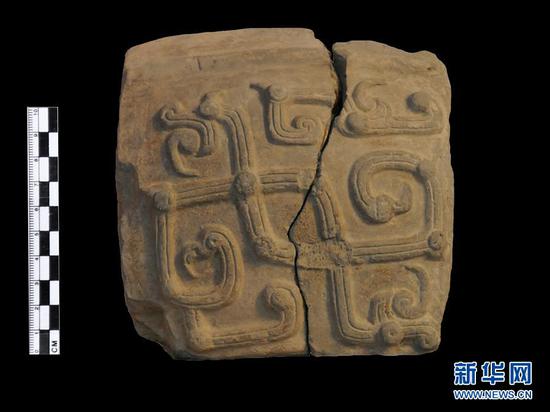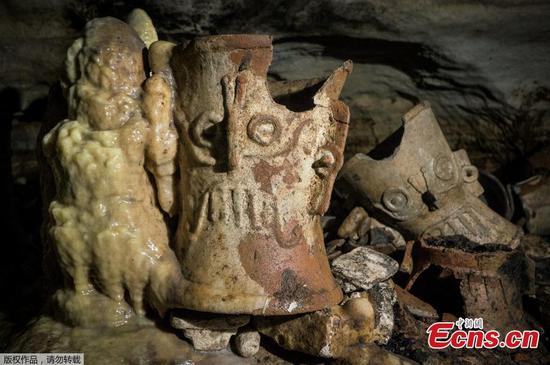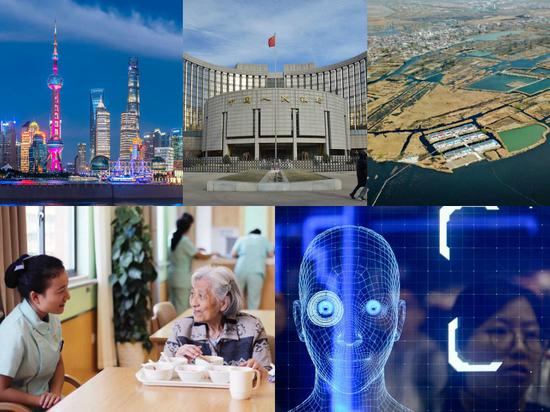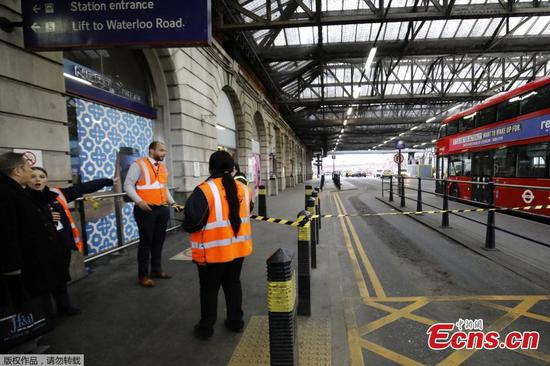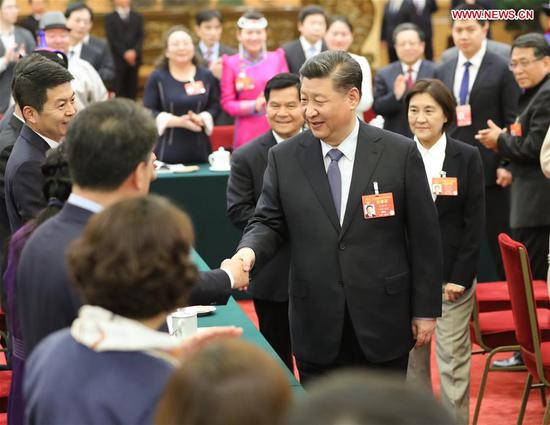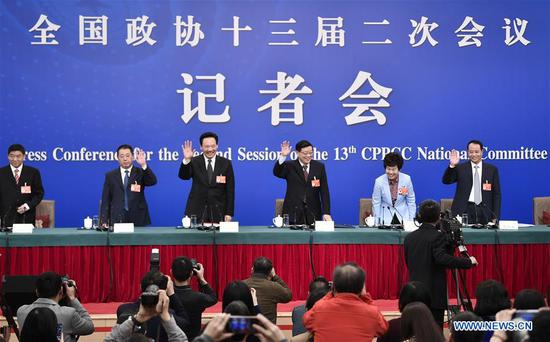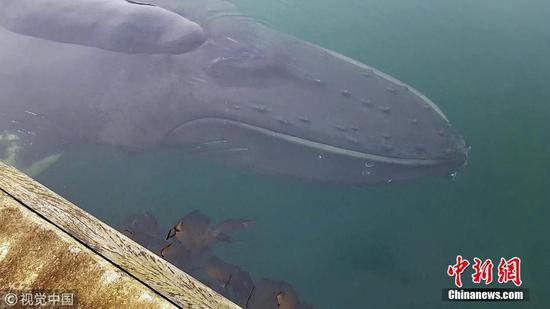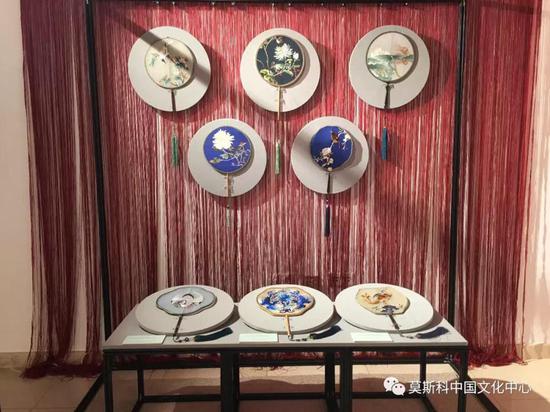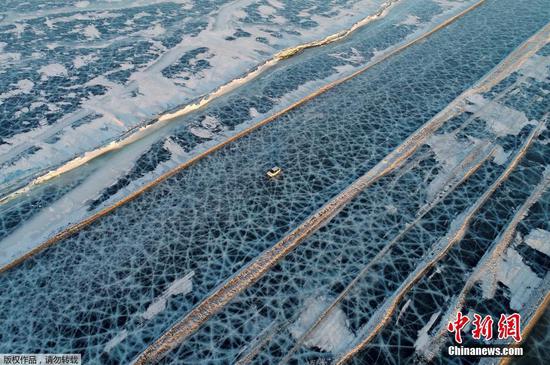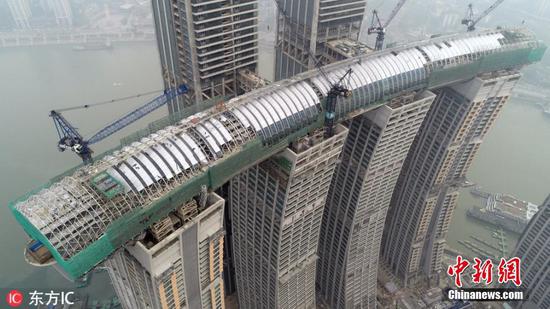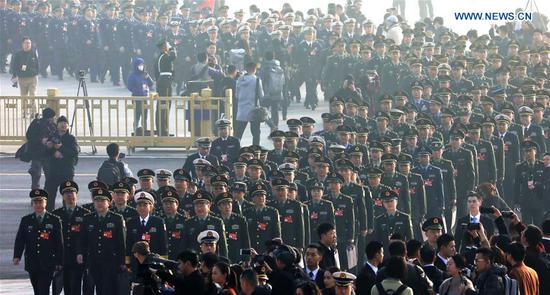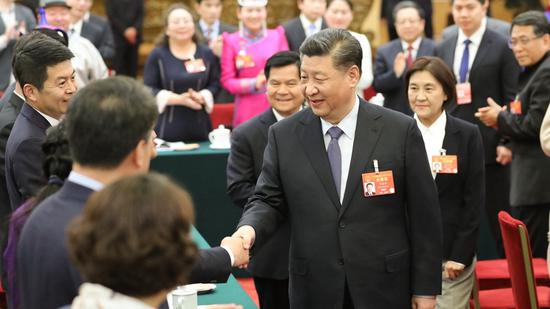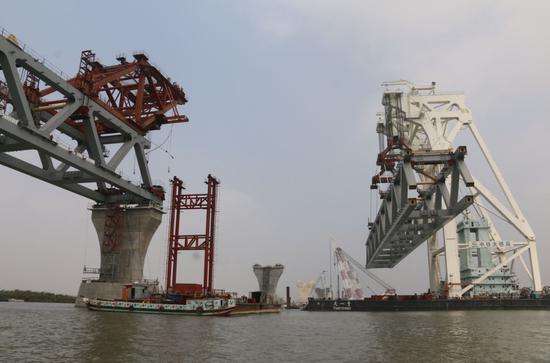
The core part of the Padma Bridge over the Padma River in Bangladesh is being built by China Railway Major Bridge Engineering Group Co Ltd on Feb 21, 2019. (Photo/Xinhua)
China Railway Major Bridge Engineering Group Co Ltd says overseas business to exceed that of domestic market
China Railway Major Bridge Engineering Group Co Ltd, or MBEC, one of the country's biggest bridge makers, said its business overseas is expected to exceed the domestic market in the future, while focusing further on updating building quality through innovations with smart technology.
Liu Ziming, chairman of MBEC and a deputy to the 13th National People's Congress, said the group's overseas projects now account for almost 10 percent of its revenue and the ratio is expected to continue rising.
The company, which is currently engaged in 10 construction projects outside China, conducts its overseas business in three ways: independent projects, contracting projects with other Chinese companies, and contract projects with overseas companies.
"Major projects in overseas markets can take years to complete, with some taking even more than a decade," Liu said.
"Over the years our management experience and technological know-how have greatly improved. We are hoping to expand into more markets, especially countries and regions related to the Belt and Road Initiative, to provide quality service and products," he said.
The company has set up marketing and management teams in foreign countries to offer more focused services.
The Chinese bridge maker said it no longer depends on advantages in terms of its bidding price to win a contract, but focuses more on project quality and cost management. "Prior to bidding in overseas markets, we find partners first and then offer our bidding price," said Liu.
Over the past decade, MBEC, a wholly owned subsidiary of the State-owned China Railway Group Ltd, has built more than 30 bridges in more than 10 foreign countries and regions, including Tanzania, Zambia and Morocco.
In 2014, the Bangladeshi government awarded MBEC a $1.55-billion contract to build the core structure of the Padma Bridge, the country's largest infrastructure project as well as the largest foreign bridge project undertaken by Chinese companies in terms of total cost.
The 25-meter-wide and 10-km-long bridge will be built over the Padma River, one of the three major rivers in Bangladesh.
Once completed, the travel time between the capital Dhaka and the southern city of Khulna will be shortened to around three hours from 13 hours.
Liu said the project has more than 400 Chinese employees and over 2,000 local employees, as part of the company's broader efforts to facilitate localization in overseas markets.
Based in Central China's Hubei province, MBEC has designed and constructed more than 2,000 bridges at home and abroad with a total length of over 2,000 kilometers.
MBEC invested more than 4 percent of its revenue in innovations last year, which are reflected in improvements to major equipment, management and marketing.
"Only by heavy investment in innovations can we be rewarded with big returns and an advantage in global competition," Liu said. "The priority goes to smart manufacturing and smart services."
Automatic equipment and robots can replace workers in risky and difficult parts of projects to improve quality and lower risks, such as construction in deep-water or towering buildings, he said.
Not limited by its core business of building bridges, MBEC has diversified its project portfolio constructing pipes transporting petroleum and expressways, Liu said.
Wang Huiyao, president of the Beijing-based Center for China and Globalization, said Chinese companies still have more choice to further diversify their market channels overseas, given the accelerating globalization and many economies' demand to build or upgrade their infrastructure facilities.
"China's proposal to explore third-party market cooperation can also generate handsome financial returns for companies from areas such as services, project contracting, equipment and material supply in both developed and developing economies involved in the BRI, without causing a clash of interests," he said.












